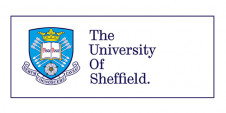Social Science of Water Network Meeting: 4th Meeting
Start Date
27.04.2020
End Date
27.04.2020
TWENTY65 Social Science Day Postponement
In light of the ongoing Covid-19 Pandemic and the new guidelines issued by the UK government we’ve made the difficult decision to postpone the TWENTY65 Annual Conference and Social Science Day.
We’ve been working hard to rearrange the events and are currently hoping to secure a date in November.
Best wishes,
Twenty 65
Theme: Social Knowledge for a new Water Paradigm
It is twenty years since Peter Gleick coined the term ‘new paradigm’ to describe the water management of the future working towards the integrity of ecosystems and the diverse needs of different stakeholders[1] through investing in efficiency, demand management, recycling and small-scale infrastructure. Whether concerned with water supply, the management of wastewater or flood risk governance, we contend that while the technical knowledge is in place to put this paradigm into practice, this has not been matched by critical as well as functional social knowledge about how institutions and people engage with water. Our meeting is focused on highlighting and exploring the nature of this knowledge, and considering whether it constitutes the basis for a revised paradigm of water.
This is the 4th Social Science of Water network day that seeks to bring together researchers, policy makers and practitioners of water management with an interest in collaborative interpretive research on water. By collaborative we mean research that is shaped by its participants, water practitioners or water-using publics. Our interpretive approach indicates that we recognise methodological and epistemological pluralism in our social science, hence valuing the contribution of different knowledge paradigms and methodologies. It is also the final meeting within the umbrella of the TWENTY65 conference. In response to the closure of this era, we begin the day with a synthesis and reflections on the work that this meeting has been drawing together, and how we see its impact developing. We aim to provide a draft of the paper underlying this talk to all participants in advance of the conference.
|
TIMETABLE |
VENUE: Hilton Hotel, Manchester Deansgate |
|
9.30 |
Coffee |
|
10.00 |
Welcome |
|
10.10 |
Synthesis of four CIROW network days |
|
|
“Collaborative Interpretive Research On Water (CIROW): New social science for a new water paradigm”. (Sharp & Linton) (20 mins) |
|
|
Discussants (10 min input from each discussant, discussants to be confirmed) |
|
|
Discussion from floor (20 minute) |
|
11.10 |
Break |
|
11.40 |
Quickfire presentations (10 at 5 mins each) (Chair Ali Browne) |
|
12.40 |
Lunch |
|
13.40 |
Main presentations (3 * 30 mins- 15 mins presentation and 10 mins questions) (Chair Liz Sharp) |
|
15.10 |
Break |
|
15.30 |
Reflections on the day (Chair Emma Westling) |
|
|
Dena Fam and Vittoria Danino 10 mins each |
|
|
Discussion 30 minutes |
|
16.30 |
Closing comments and next year Liz Sharp |
|
16.40 |
Finish |
|
17.00 |
Drinks reception (Sponsored by Anglian Centre for Water Studies) [A separate, larger, event that we hope most delegates will attend and to which TWENTY65 conference delegates are also invited]. |
|
18.00 |
Keynote discussion: Why the water sector cannot do without social science |
|
18.00 |
Introductions and welcome from sponsor (Zoe Sofoulis (chair) and Vittoria Danino (Anglian Centre for Water Studies) |
|
18.15 |
Sarah Bell (UCL), Jess Phoenix (Defra) and Rachel Dyson (Anglian Water), 15 mins each 30 minutes discussion. |
|
19.45 |
Close |
CALL FOR PAPERS
The Social Science of Water Network Day focuses on new knowledges and practices in the UK water sector and how insights from interpretive social sciences can provide learning, sharing of ideas and impact.
The network day is intended as an opportunity to present material which may not be suitable for an interdisciplinary audience, either because of theoretical complexity or its unfinished nature. All social scientists should also consider submitting an abstract to the main TWENTY65 conference, with a view to presenting their research to an interdisciplinary audience.
Main presentations at the Social Science Network day
While our main focus is likely to be the UK water sector, we are happy to consider contributions from overseas.
We are particularly (but not exclusively) looking for contributions that:
- review interpretive understandings and findings within particular fields of interest – e.g. water efficiency or flood management
- can reflect on whether and how interpretive (or more constructivist/ post-positivist) research has influenced policy and practice within water management science
- can improve our understanding of how ‘useful’ or ‘usable’ knowledge is currently defined within the water sector policy and practice (including industry but also the EA and local authorities), what is considered as legitimate evidence, and how these positions potentially could or should be challenged
Abstracts should be a maximum of 200 words, see also general requirements for abstracts below.
Quick-fire talks – call for short abstracts
Abstracts are invited on specific projects or case studies to contribute to the quick-fire talks. You will be expected to provide one slide and to speak for 5 minutes. The aim of these talks is to communicate the essence of a project, leaving time for those with related interests to follow up the talk with discussion during coffee and lunch breaks. The slots are suitable for PhD students or for other projects where the c
